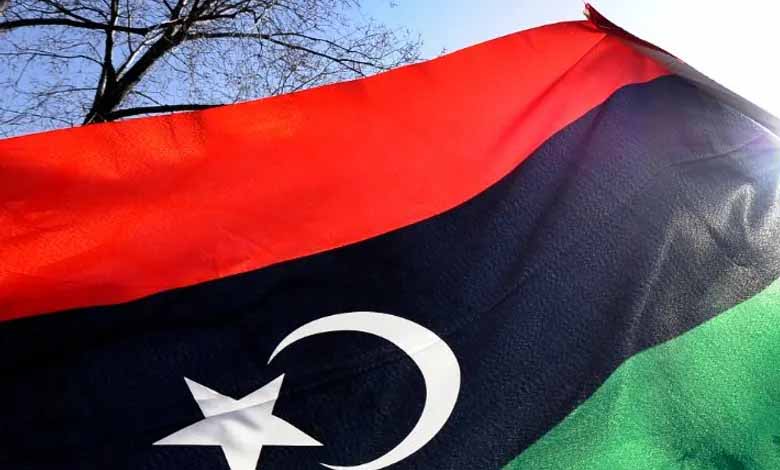Washington pressures Libyan institutions accused of obstructing political solution

The United States on Thursday warned Libyan institutions “blocking a solution to the crisis” in the country not to reassess their relationship, signaling that Washington will continue from urging the warring parties to establish a constitutional basis conducive to transparent elections to pressuring and possibly imposing sanctions on those obstructing a settlement.
“He held meetings in Tripoli with government officials, international partners and the donor community, including representatives of the Libyan Government of National Unity, the United Nations mission, the World Bank, the Libyan Presidential and High Councils of State, and the Electoral Commission,” US Special Envoy to Libya Ambassador Richard Norland said at a press conference held at the end of his visit to Tripoli, which began on Tuesday.
The Libyan High Council of State decided last week to vote unanimously to ban the candidacy of dual nationals and military personnel to the presidential elections, which means that the crisis in Libya will continue as the disputes continue between the Council and the Parliament on the constitutional base, despite previous talks about the convergence of a series of meetings in Egypt and an agreement in Bouznika in Morocco on the distribution of sovereign positions.
This vote confirmed the difficulty of agreeing to hold elections despite the efforts made by the Speaker of the Council of Representatives, Aguila Saleh, to overcome the differences. The Supreme Council of State decided on the two articles that are subject of dispute with the Council of Representatives, which prevented agreement with it on the constitutional basis for the elections that have been postponed since last year.
Dbeibeh has repeatedly held the Higher Council of State and the Council of Representatives responsible for obstructing political progress due to the lack of consensus on the constitutional basis, explaining that this is aimed at the continued existence of the two institutions and serving certain interests as the current situation continues.
It seems that these negative developments have disturbed the American side, which stresses the need to find agreements. In these meetings, Norland said, “I stressed the urgent need to take concrete steps to establish a constitutional base conducive to credible and transparent elections in accordance with the aspirations of the Libyan people.”
Norland called on “Libyan leaders and institutions to use their influence to push towards this goal,” warning that “the status quo cannot continue.”
He pointed out that Washington “might re-evaluate its relations with the actors and institutions that delay and hinder progress toward political solutions,” which means that the United States, which is impatient, has begun to take serious steps to push the path of settlement by imposing pressure on some institutions that are accused of putting obstacles to the resolution of the political crisis.
“The continued threat of oil shutdown, recent clashes between militias and popular anger following the issuance of the Audit Bureau’s report all highlight the need for more financial transparency and accountability for the benefit of the Libyans”, Norland said.
The United States has repeatedly called on Dbeibeh’s government to increase transparency over allegations that it wasted public funds to gain loyalty, but the head of the Turkish-backed unity government appears to be still maneuvering in that direction, blaming the crisis on the House of Representatives.
The US envoy noted that his country “has chosen Libya as a key country in its strategy to prevent conflict and promote stability, and is committed to partnering with Libyans to support a more stable future led by an elected and unified government.”
“An agreement between the head of the national unity government and the head of the government appointed by the (eastern) House of Representatives, Fathi Bashagha, is possible,” he said.
“We are not in favor of Dbeibeh or Bashagha,” he said. “Both are from Misrata and know each other, so we think an agreement is possible between them.”
“The good thing so far in Libya is that the ceasefire signed on 23 October 2020 was holding and holding,” said Norland.
“If the agreement is violated and the current situation escalates, the international community must look closely and know who is responsible,” he said.
Libya is currently witnessing a political crisis, with two governments vying for the power – one assigned by the House of Representatives headed by Bashagha, and the other by the unity government headed by Dbeibeh, which refused to hand over power except to a government appointed by a new elected parliament.
To resolve the crisis, the United Nations has initiated an initiative to form a joint committee of the Libyan House of Representatives and the State to establish a constitutional basis for elections, but this step is proceeding very slowly.












